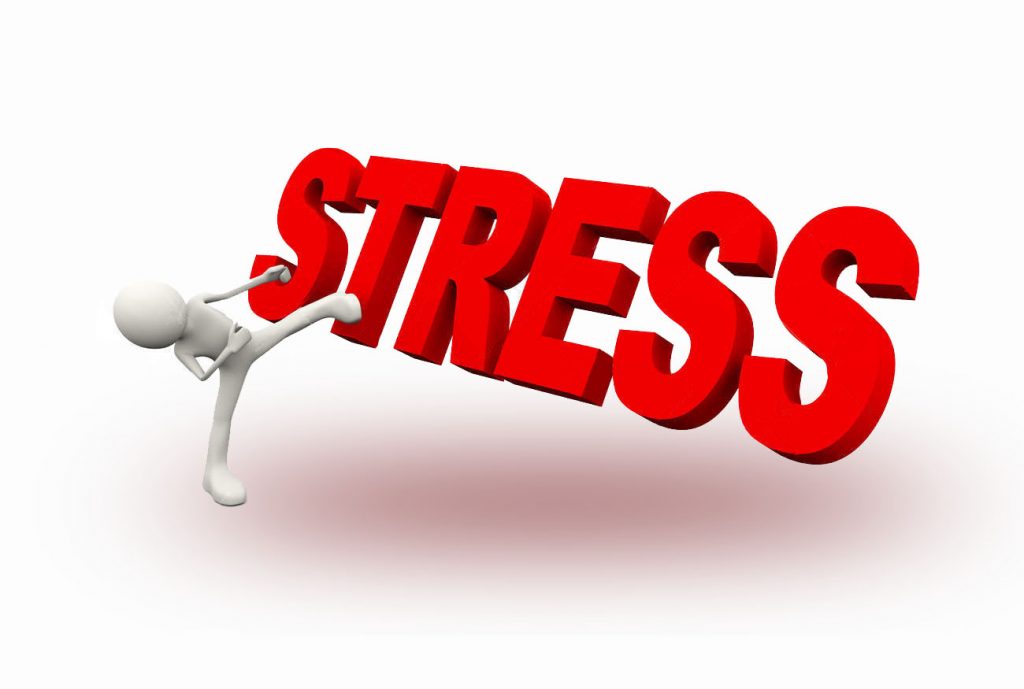
INTRODUCTION:
Stress management is the amelioration of stress, especially chronic stress often for the purpose of improving everyday functioning.
What is Stress?
Stress is a mental, emotional or physical strain caused by a variety of factors e.g anxiety or overwork. It is also a feeling of emotional or physical tension.
Stress produces numerous symptoms which vary according to persons, situations and society. These can include declining in physical health as well as depression.
Walter cannon and Hans Selye used animal studies to establish the earliest scientific basis for the study of stress.
They measured the physiological responses of animals to external pressures. Such as heat and cold, prolonged restraint and surgical procedures, then extrapolated from these studies to human beings.
Subsequent studies of stress in human by Richard Rache and others established the view that stress is caused by distinct, measurable life stressors and expressed further that these life stressors can be ranked by the median degree of stress by produce.
Thus stress was traditionally conceptualized to be a result of external insults beyond the control of those experiencing the stress. More recently, however, it has been argued that external circumstances do not have any intrinsic capacity to produce stress, but instead their effect is medicated by the individual’s perceptions, capacities and understanding.
Vital Statistics/Epidemiology
70% of visits to Doctors are stress related
80% of serious illness are due to stress
Over 40% of workers describe their jobs as very stressful
Millions of working days are lost yearly as a result of stress
Those at Risk:
Workers e.g. nurses, bankers etc.
Young adults
Working mothers
Workers bin big cities
Less-educated people
Widows, Divorcees
Unemployed
Isolated/ Homeless individuals
Causes of stress:
The causes of stress are referred to as stressors and some of them are enumerated below:
Symptoms & Signs:
Some of the symptoms and signs of stress are:
Sleep difficulties
Poor appetite and weight loss
Poor concentration/ Headaches
Frequent aches and pains
Stiff jaw or neck
Weight loss
Missed deadlines
Anger tantrums
Anti-social behaviors
Alcohol or drug abuse
Nervous habits
Depression
Increased BP
Stomach upset
Cerebrovascular accidents
Diabetes etc.
Techniques of Stress Management:
High demand levels loads the person with extra effort and work. It is then high time a new time schedule is worked up.
Until the higher-than normal demand has completed, the normal frequency and duration and duration of the normal personal joys and normal interpersonal fulfillment that time usually allows to be diverted must be politely curtailed or blocked but many techniques cope with the stresses life brings. Some of the following ways induce a lower than usual stress level, temporarily, to compensate the biological tissues involved; others face the stressor at a higher level of abstraction.
Techniques of stress management vary according to philosophical paradigm but we will examine the following:
Autogenic training
Cognitive resolution
Conflict resolution
Exercise
Getting a hobby
Meditation
Deep breathing
Reading novels
Relaxation techniques
Artistic expression
Fractional relaxation
Progressive relaxation
Clinically validated alternative treatment
Listening to certain types of relaxing music, particularly;
New age music
Classical music
Psychedelic music (Highlife)
Sleep music.
MEASURING STRESS:
Levels of stress can be measured. One way is through the use of the Holmes and Rahe Stress Scale to rate stressful life events. Changes in blood pressure and galvanic skin response can also be measured to test stress levels and changes in stress levels.
A digital thermometer can be used to evaluate changes in skin temperature, which can indicate activation of the fight-or-fight response drawing blood away from the extremities.
MANAGING STRESS:
Inspite of the enormous weight and the hazards of stress, the following measures of management can be proffered:
Sleep/ rest
Improved diets (balanced) promote natural/ B vitamins (taking of fruits).
Avoid fried/ fast foods.
Reduce toxin intake (tobacco/alcohol)
Exercise regularly
Walks/jogging
Don’t try controlling uncontrollable things
Share worries
Take vacations/ leave
Encourage social habits
Promote humor/ good laughs
Be part of promoting a just course
Treatment of unpleasant conditions
PREVENTING STRESS
Irrespective of the kind of STRESS, one or all of the following steps can be taken prevent it:
Remove the stressors
Reduce the stressors
Remove yourself from stressful conditions
Pay regular visits to your Physician (Doctor)
Take enough rest
Be content
CONCLUSION:
Stress is known to be an ugly monster that gives men away to more potent monsters like Hypertension, High blood pressure, stroke and the final- DEATH. Nevertheless, Stress Management has psychological and immune benefits, effects and positive outcomes are observed using a combination of non-drug interventions like treatment of anger or hostility or talking therapy i.e good interpersonal relationship with people around you. Remember, life is in phases and men are in sizes. Never bite more than you can chew. STAY STRESS-FREE.
ARTICLE WRITTEN BY: GRACE ‘TOLU DOGARA of EDUCATION UNIT, NATIONAL MUSEUM, MINNA.



